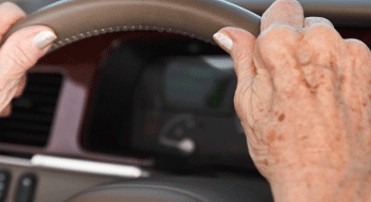 The Independent Transportation Network of America (ITNAmerica), a national organization is helping older people with their transportation needs at a time of dwindling state and city funds and growing demand.
The Independent Transportation Network of America (ITNAmerica), a national organization is helping older people with their transportation needs at a time of dwindling state and city funds and growing demand.
Most impressive, the ITN doesn’t rely on state money. They recruit a roster of drivers large enough to guarantee seniors rides 24 hours a day, seven days a week. One of ITN’s successful initiatives is to allow elders free rides if they are willing to donate their cars to the program.
Leroy Steinke, who is 87 years old, used to drive his wife and a neighbor to doctors’ appointments and other errands on the North Side of Chicago. Then Steinke’s health declined, and he knew they would all need to find another way to get around. So he turned to ITN, which many seniors call “a Godsend”.
Katherine Freund founded ITNAmerica in 1995 after her son was injured by in a crash caused by an 84-year-old driver. She realized that the cause really was the public transportation system, which makes it so difficult for seniors to use traditional mass transit. She began working toward her Master’s Degree in public policy and analyzed transportation for older people from every conceivable angle.
Her latest victory: Illinois Governor Pat Quinn is expected to sign a measure making it easier for volunteer drivers to take the elderly where they need to go without having to spend more money for their car insurance.
Challenges like these can often be solved only at the state level. The states have generally been willing to cooperate. Connecticut, Florida and Kentucky all have passed measures that essentially allow ITN affiliates to operate locally without having to worry about insurance problems or other legal hurdles. Illinois has followed Maine’s example, by seeking to prohibit car insurance companies from raising rates for volunteer drivers.
ITN uses a combination of paid and volunteer drivers. This allows the organization to guarantee a ride 24/7. If it used only paid drivers, the service would be far too expensive for most customers, but if it used only volunteer drivers, “we could not possibly meet the demand for rides,” says Freund. Volunteers use their own automobiles and receive either a mileage reimbursement for occupied miles (when a passenger is in their car) or transportation “credits” for rides. Paid drivers are part time and often retired. The vehicles they drive are usually donated to ITN or traded to ITN for rides.
Many of the drivers who volunteer to help seniors in the ITN program are themselves elderly. By participating, they earn credits that they can store and use later as they grow older, or donate to family members or the poor. Seniors who use the service pay an annual membership fee of $40 for an individual, or $65 for a family. Fees for individual rides depend on mileage and are lower if arrangements are made ahead of time. Community groups and local merchants also donate credits to help pay for seniors’ rides.
With the help of the Rappaport Center at Suffolk Law School, ITN is creating a website laying out the policies in all 50 states that help or hurt efforts to provide rides to seniors. In the meantime, Chicago is ramping up its program, looking for volunteer drivers and donations.
(Source: Stateline.org)



















